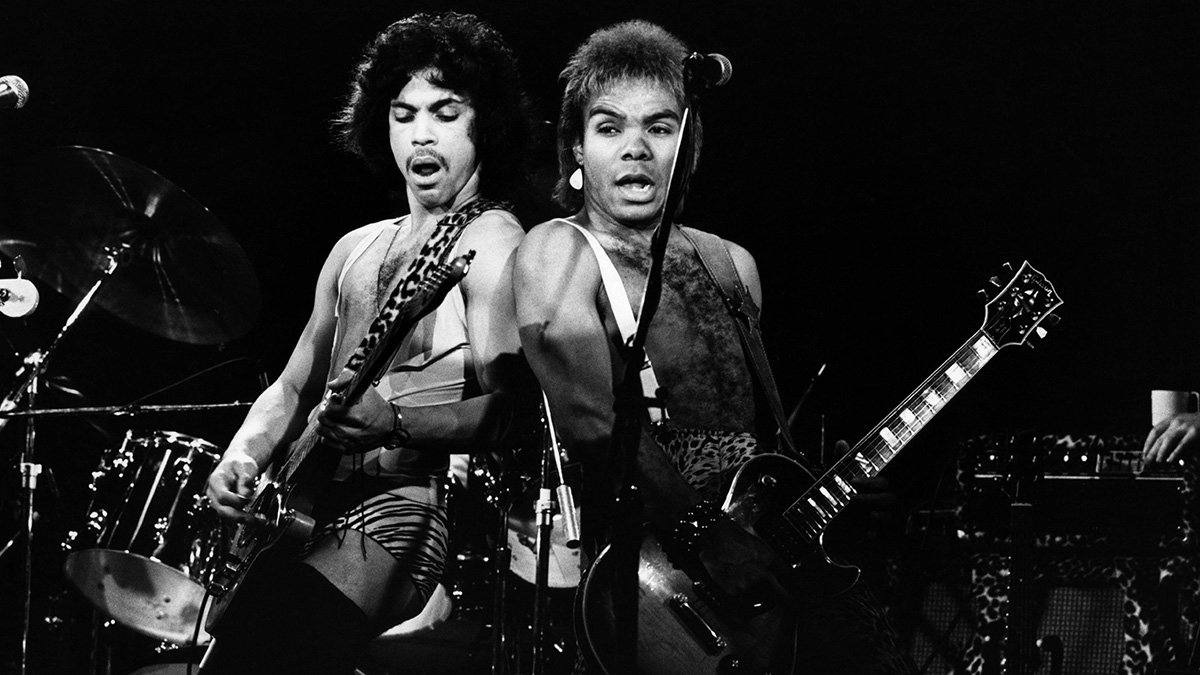Rui Da Silva talks career and shows off his London studio
Future Music meet the artist, producer, label boss and DJ
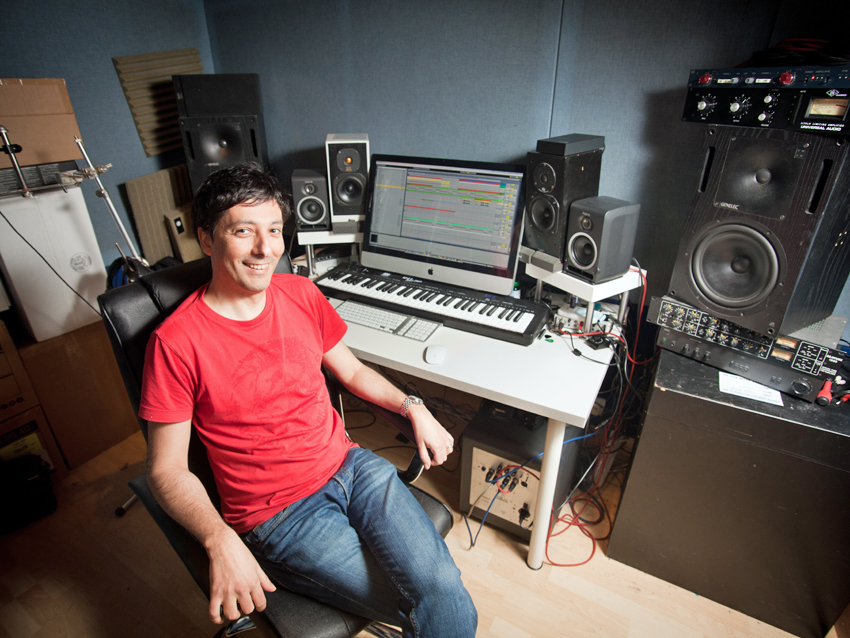
Rui Da Silva studio
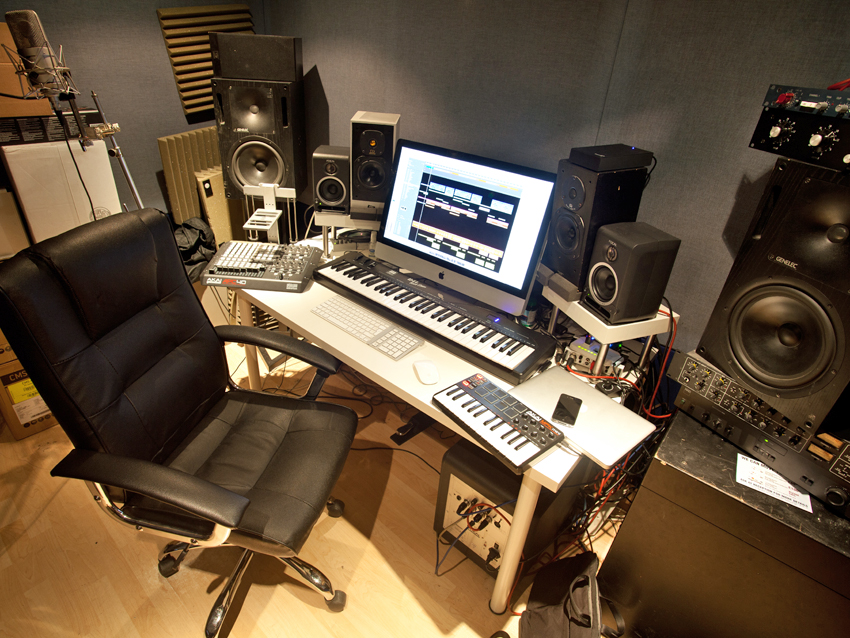
Empty studio
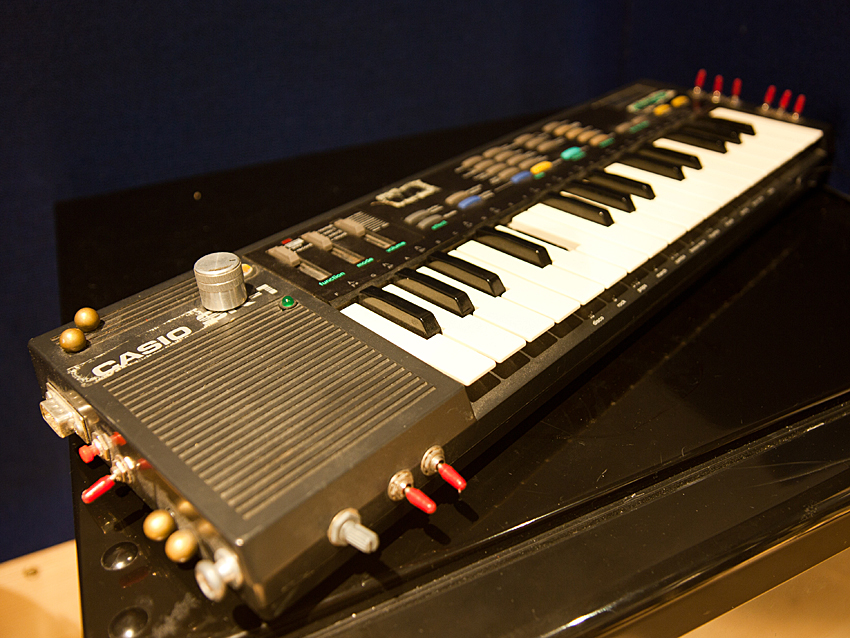
Rui Da Silvla circuit bent
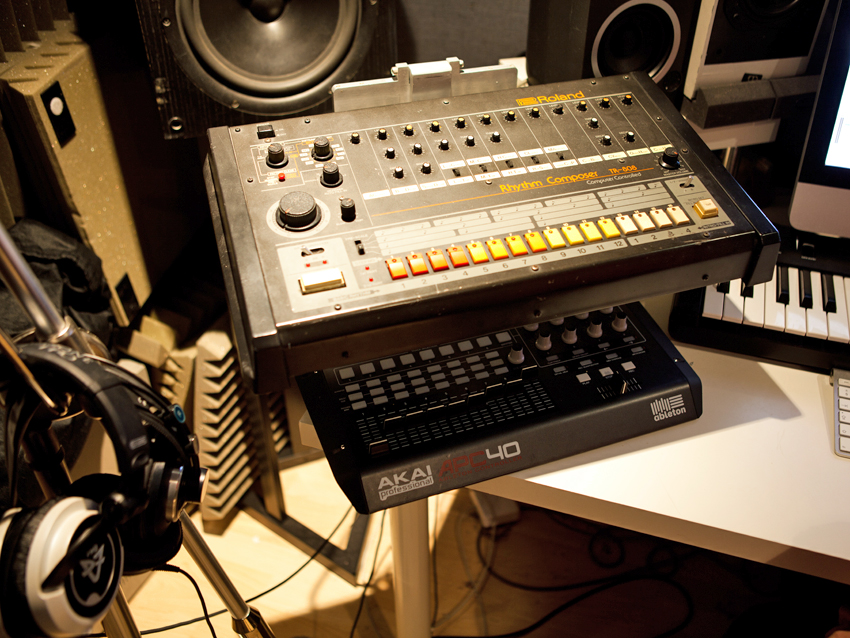
Roland TR-808
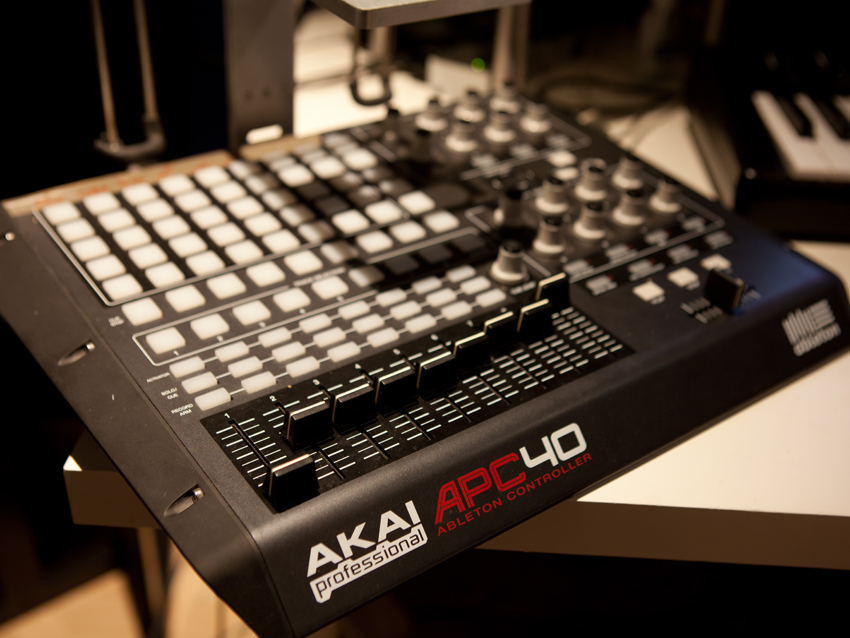
Akai APC-40
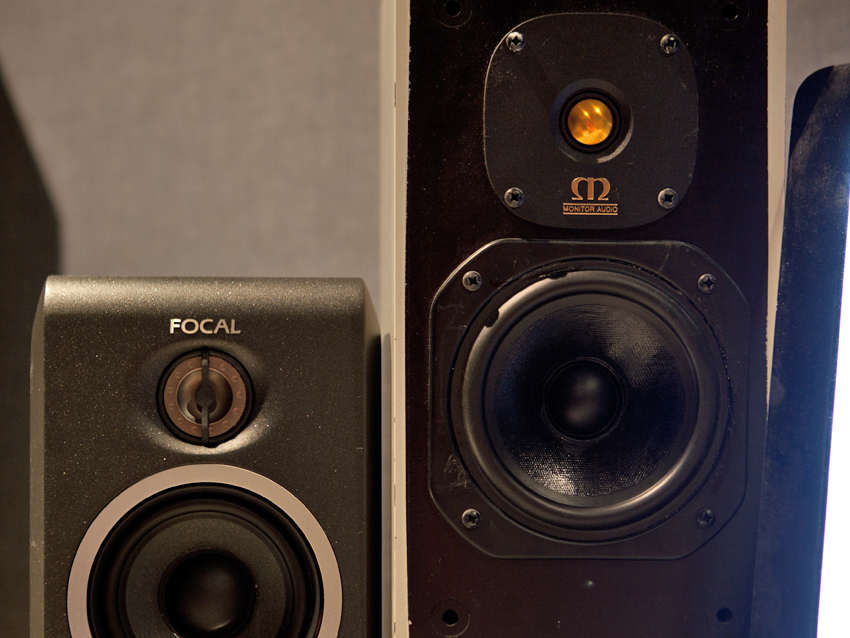
Monitoring
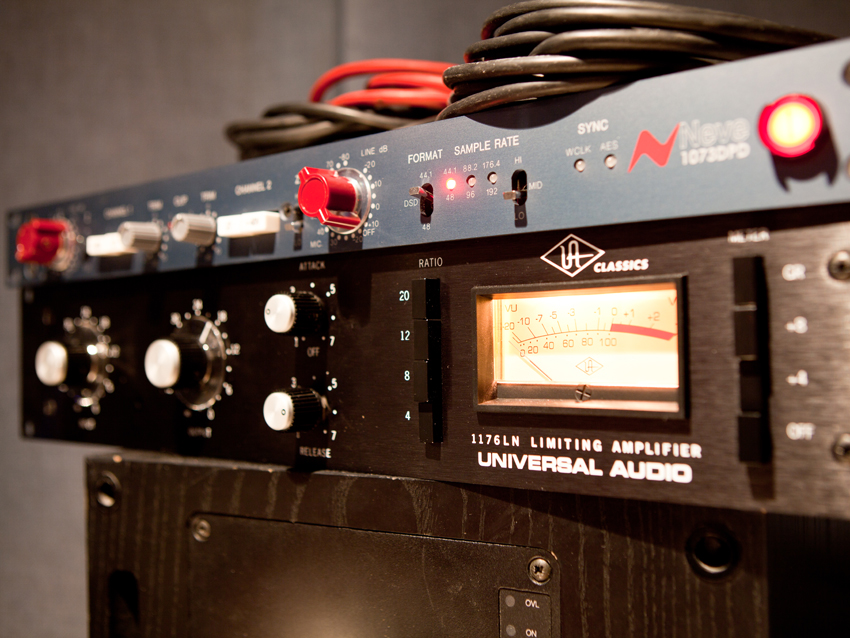
Rui Da Silva racks
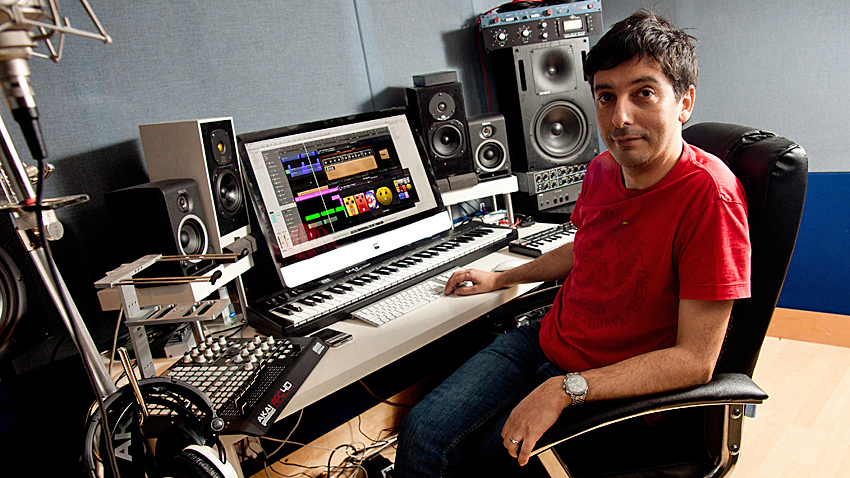
Very few people manage to combine genuine underground respect with commercial success, but Portuguese producer Rui Da Silva has managed just that.
Over the years he's also notched up a broad array of collaborations including Underground Sound of Lisbon with DJ Vibe and Coco Da Silva with Chris Coco. Other notable notches on his belt include label owner - Kismet Records - DJ and general computer whizz. He's also a man who's never satisfied, constantly looking to learn and re-learn music-making science and skills. Following a few years out in Ibiza, he moved over to London in 2012. We caught up with him at his base in Soho Recording Studios to talk technology and music making.
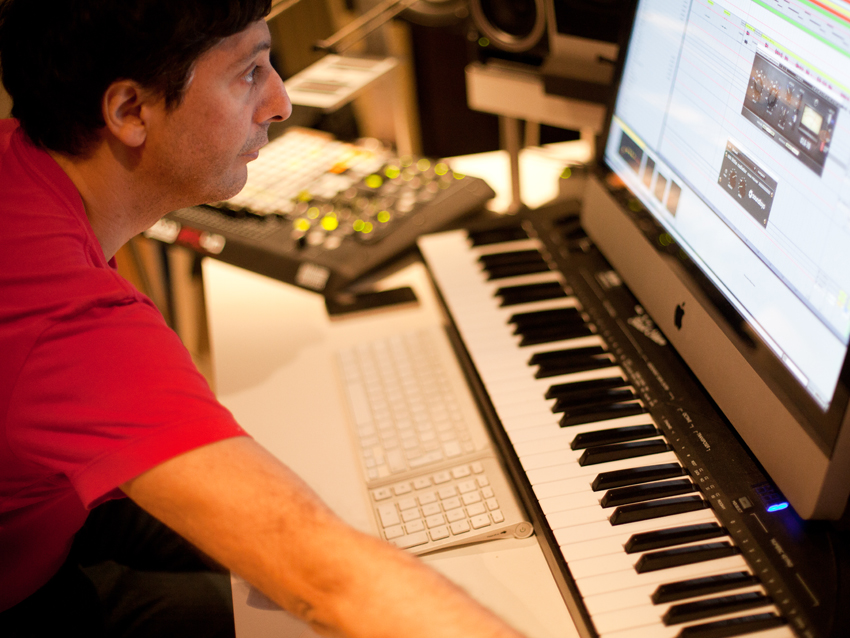
How did you start making Electronic music?
"The first computer that I started making music on was a Commodore Amiga. Then I bought Music-X, which was my first sequencer software. People were using Ataris at the time, but with the Atari I needed to have external machines, and I didn't have outboard. So by buying just the Commodore Amiga I could use the sequencer and also use the internal sounds. So that was the first thing that I was really making music and experimenting with sounds on. Then a friend of mine bought a second-hand Boss DR-55 drum machine, so I was spending most afternoons programming beats on that."
"There's a myth that exists that people have got talent. I don't believe in that myth - there is no 'talent' as such"
How did you then go on to get your first break in the music world?
"Everything was very entrepreneurial. I was fortunate enough to come across one of the first sound engineering courses in Portugal, so I took it. And from that I had my first experience of going into a recording studio with tape. I would be programming beats while everyone else was doing other things, learning the studio. I had access to some early magazines and people's interviewsabout how they produced and got their music out there. They'd go to a pressing plant with a DAT or cassette and get it cut to vinyl, then go to a record shop and sell them there. I decided to do exactly the same, and put some money together. I found out that there was still one manufacturing and cutting room in Portugal, and went there with some money in my pocket and said 'Can you cut this onto an acetate?' and they did. I pressed two or three hundred records and got them delivered to my parents' house, which was quite a big bulk ofmerchandise! Then I went to the local shop and gave them some records to sell, and from there I started networking."
How did you then get the tracks into the hands of the right DJs?
"I was working in a news radio station at the same time and I knew a lot of journalists who took some interest in what I was doing. They ran a story in the local and national newspapers about this music kid that was doing it all himself.That helped me move to the next step and people started approaching me, and we ended up creating a record label."
What's your advice for anyone trying to do it themselves in today's climate?
"It's really different now. They need to focus all their energy on learning and networking, and they need to be really persistent. Looking back, I can see why things happened. You put in so much time and effort, and you're so committed to doing something, that it eventually cuts through.There's a myth that exists that people have got talent. I don't believe in that myth - there is no 'talent' as such. People confuse someone with talent with someone who's been working really hard to get where they are. And actually, when you praise their talent you're actually undermining their confidence, because they know that deep down they're there because they work hard and not because they've got talent."
What prompted the relocation to sunny London?
"Back in Portugal I started getting a lot of success outside of the country. I had records getting played in New York and here in the UK. I had a successful record label in Portugal and I was becoming what you would call a big fish in a very small pond. I'd rather be a small fish in gigantic pond!"So, I terminated all my business relationships in Portugal and ended up moving to London. I started working from home but then found a room at the Roundhouse Studios.I moved there with all the savings I had at the time. I said' I can afford three months'. After that I'd done loads of music, including the record that was going to change my life and my career."
Get the MusicRadar Newsletter
Want all the hottest music and gear news, reviews, deals, features and more, direct to your inbox? Sign up here.
That record was Touch Me. Explain how that track came about.
"It was really hard to make things happen as I didn't have many contacts. I was writing a lot of underground records, and a lot of people were saying 'You need to put vocals on your records' but I didn't really know anybody.So I was thinking 'Where am I going to find asinger?' Then one day I was going to meet my wife in the West End and I came across this girl singing. She had just come out of a bar and joined some buskers on the street, and there was this magical moment and I thought 'Oh, wow! I need to get this girl's number because I think it'd be fantastic to get her in the studio'. I managed to get her number and she came down the following week and that was it - we worked on a song, and that track became Touch Me."
And that went to number one?
"Yeah, in the UK, Portugal and Ireland. In quite a few countries around the world it became a gigantic record, and created a lot of great, and not so great, things. It totally changed my life, in a lot of respects."
So, what happened then?
"All of a sudden, all the time that I'd had for making music was being taken up with all sorts of activities that have nothing to do with makingmusic. I was going from promoting, to touring and back again, and basically all my time was being taken away from me.I also had to deal with a court case that drained about two whole years out of my life. There was loads of stuff that had absolutely nothing to do with music getting in the way. With the record being so successful, people expect you to just be doing stuff related to that and nothing else, but that wasn't that case, I'm afraid. I didn't want to just focus on one song."
"You have to try and keep it interesting, otherwise it won't be much different to working at a till in a supermarket"
Did you then get back into DJing?
"Yeah, then I started DJing because there was loads of demand. At the time it was very different from now. The US now embraces Electronic music so things are on a different scale."
When you're producing, how do you set about making a track?
"It depends what I'm doing. If it's an underground record I'll try and get into a vibe. Also, I try not to approach each track the same way.Through making music for 20 years I've found that the biggest difficulty is keeping it exciting and interesting. I've developed a lot of techniques to try to avoid falling into those pitfalls because, basically, you're going to be loading another kick drum, loading another snare drum. You have to try and keep it interesting, otherwise it won't be much different to working at a till in a supermarket, just scanning items.You need to make something by introducing elements that make you look at the same thing from a different perspective."
So, you're looking for something to help trigger the creative process?
"It depends. Sometimes I'll get a brief. I do like working with a brief because it kind of creates something very important,which is an artificial limit on what you're doing. "When I started producing I would only havetwo synths, a sampler and a drum machine. I liked to have a limited number of sounds. I wouldn't be procrastinating by not finishing the track because everything was tied up into a mixing desk. I couldn't move to the next one until I've finished this one. So the track could go through 50 different versions until you end up with something. I still create that sort of environment in the computer. I like to do tracks where you set up a virtual studio and record it as a live jam. But now I can just put it to the side and come back to it later.When you get a brief it helps because you create those limits like you had in the past, where you only had these machines and nothing else to use, because otherwise you can get totally lost in what you're doing inside the computer."
"I am always training. Always. One of the things that keeps me interested in making new music is always learning new stuff"
What about collaborating?
"Yeah, I find collaborating is the best tool if you're looking for longevity in your career as in you're still wanting to do it, as opposed to 'Yeah, I've got an amazing studio with loads of equipment, but actually I don't turn it on anymore because I'm bored of making music'. I think it's what happens to a lot of people that kind of disappear...they just get bored of doing the same thing."
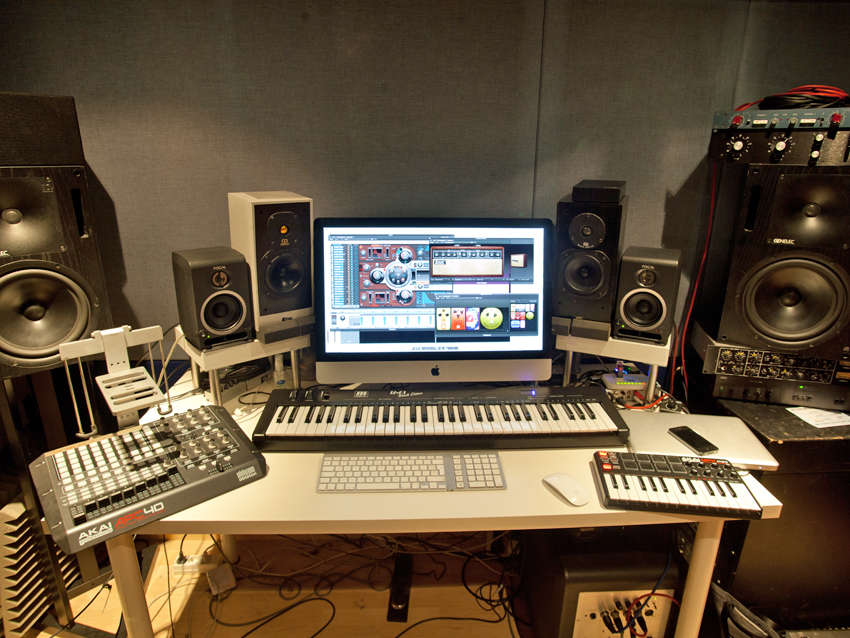
What are your tools for working in the box?
"If I'm working on songs I work in Logic. I started working in Logic on version 1.8 back in 1992 when I had a recording session with Deep Dish in Washington. At the time I was using Cubase and they were using Logic, and I came back to Portugal with Logic and I've never looked back.If I'm doing underground stuff I usually use Ableton Live, just because of the way you can approach the music - it's more about the vibe, and you can record the arrangement live so it kind of simulates the old mentality of having a mixing desk with a couple of machines.I'll then move all that into Logic, and that's where you can engineer it, tweak it and put in a few more overdubs to finish it off. I love working on Reaktor as well - it's one of my favourite environments to create sounds in. I like things that aren't trying to replicate something, but are something that it would be impossible to create with real hardware.I've also been doing a very interesting course on sound design for the last six weeks."
So, you're still training?
"I am always training. Always. One of the thingsthat keeps me interested in making new music is always learning new stuff. The main drive behind making any song for me is the desire to learn something new. That's why when I work with briefs I like it when someone comes and says 'I want to do a track in the genre of Kuduro, but it's going to have a very Dance orientated topline'.I've never done anything like that so I'm gonna go and look into this genre and spend one week learning the techniques."
Are there any plug-ins you come back to?
"Yeah, I'm very happy that I'm able to have Eventide Harmonizer [H3000] on native. It doesn'thave all the algorithms that I had on the hardware, but I loved the Harmonizer. Also, I keep coming back to SoundToys stuff."
And synths?
"One of the main reasons I decided to do this sound design course is because for the last few years I've relied a little too much on browsing through patches, which can be daunting if you've got a sound in your head. So I thought it would be good to do a refresher of how to dial sounds infrom your head into the synth. A lot of it I already knew, but it made me focus on being able to dial the sounds I need quickly into the tracks.I've delved deeply inside Absynth and deep inside Reaktor, changing ensembles and creating ensembles. I'm not looking to create synths, but I can adapt or change things to suit what I'm aiming to achieve."
"These days I would advise people to spend more time looking for people who can look after the business while you just focus on the creativity"
So, building your sounds from scratch?
"Yeah, when I need to. Sometimes I browse through patches because I'm looking for inspiration, but sometimes I need a specific sound and it can be very uninspiring going through sounds that you don't want and is also a massive waste of time."
You've re-learnt to get to the sound you want from the basic building blocks?
"Yeah - it's a very important skill if you're making Electronic music."
Is there a specific sound that is typically you?
"There are a lot of sounds, and especially a kind of groove or rhythm to my music. However, over the past few years I think that has disappeared a bit. When you're producing or writing for other people you need to switch that off.You need to make sure that the artist has got his or her own identity. You need to focus on what they represent, and not what you represent."
What's the best advice you've ever had?
"That collaboration is so important, because not only does it help you bring that random element that makes you look at something from a different perspective, it's also a trade of knowledge between two people. You are learning from someone else and they are learning from you. So that's probably the most important advice - collaborate."
What about being a label owner and self-releasing?
"For many years I've always dealt with the business and the creativity, and the business always took a lot of time away from me being creative. These days I would advise people to spend more time looking for people who can look after the business while you just focus on the creativity."
Finally, how has DJing changed for you?
"I had my first experience of having to DJ with a sync button a few weeks ago at a friend's party. I found it quite interesting because I found it liberating in the way that you can actually focus a lot of your time on thinking how you can improve the music that's going out, how you can add more things, and make the experience for the people that are listening to you more interesting and more exciting than just playing record A to record B. I was DJing with SD cards on Pioneers - very convenient - but now I've decided for 2013 to create a new show where I'll be DJing with Traktor and playing sounds from my productions on top of other records. It actually requires a lot more preparation. You're not worried about the beat mixing, but you still need to worry about what goes well with what, and you focus much more on the energy levels on the dancefloor to create an interesting experience for the people who come and see you and come to dance."
Rui Da Silva continues to produce and collaborate. For more information on forthcoming material, check out his label's online haunt: www.kismetrecords.com


Future Music is the number one magazine for today's producers. Packed with technique and technology we'll help you make great new music. All-access artist interviews, in-depth gear reviews, essential production tutorials and much more. Every marvellous monthly edition features reliable reviews of the latest and greatest hardware and software technology and techniques, unparalleled advice, in-depth interviews, sensational free samples and so much more to improve the experience and outcome of your music-making.
“I have an original 909 – every time I try to use it I feel like I’m ruining it”: House hero Riva Starr on his studio essentials and his love of analogue synths
“I’m looking forward to breaking it in on stage”: Mustard will be headlining at Coachella tonight with a very exclusive Native Instruments Maschine MK3, and there’s custom yellow Kontrol S49 MIDI keyboard, too

